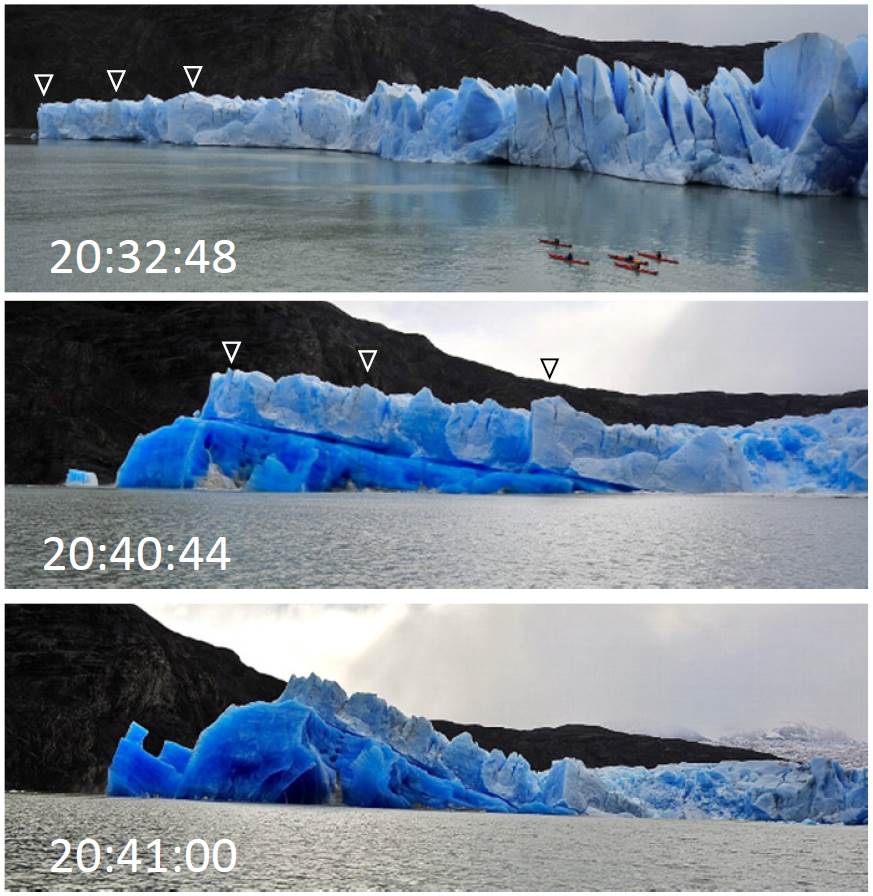
Freshwater “glacier tongues” can be dangerous to humans
Using underwater sonar technology, researchers from Hokkaido University found that glaciers extending into freshwater lakes can form long tongue-like shelves of ice that jut above surface level when ice chunks fall into the water. Their findings are published in Geophysical Research Letters.
The sonar technology used in this study is called “side-scanning sonar,” and allows scientists to view glaciers underwater without danger. The sonar torpedos are attached and dragged by a boat, emitting sound pulses as they go to map out the glacial structure.
Shin Sugiyama, an Earth scientist from Hokkaido University, used this tech to study Grey Glacier, a slow-moving glacier in the Southern Patagonia Ice Field with three finger-like appendages extended into the freshwater lake Lago Grey. Sugiyama and colleagues found that the easternmost appendage spans about 100 meters below what is visible from the water’s surface.
The ice terraces forming in freshwater bodies are different than those forming in oceans. Ocean glaciers in Greenland, for example, develop with deep cavities formed by changing ocean temperatures caused by melting ice water.
However, when freshwater glaciers form, the warm water near the surface melts the subsurface ice, forming these tongue-like structures. Because the buoyancy of the submerged affects the above-water ice, large chunks can break off, and portions of the underwater tongues can turn upright in the water.
“If human activities happen in these glacial lakes, care should be taken to prevent accidents caused by the sudden emergence of underwater ice,” Sugiyama said.
“In the future, we plan to use the side-scanning sonar at other glaciers in Patagonia, Greenland and Antarctica. We are also willing to replace the instrument with a multi-beam sonar, which is able to capture a larger area of underwater ice from a longer distance,” Sugiyama concluded.
—
By Olivia Harvey, Earth.com Staff Writer
Image Credit: S. Sugiyama, et al., Underwater Ice Terrace Observed at the Front of Glaciar Grey, a Freshwater Calving Glacier in Patagonia, Geophysical Research Letters, February 12, 2019













